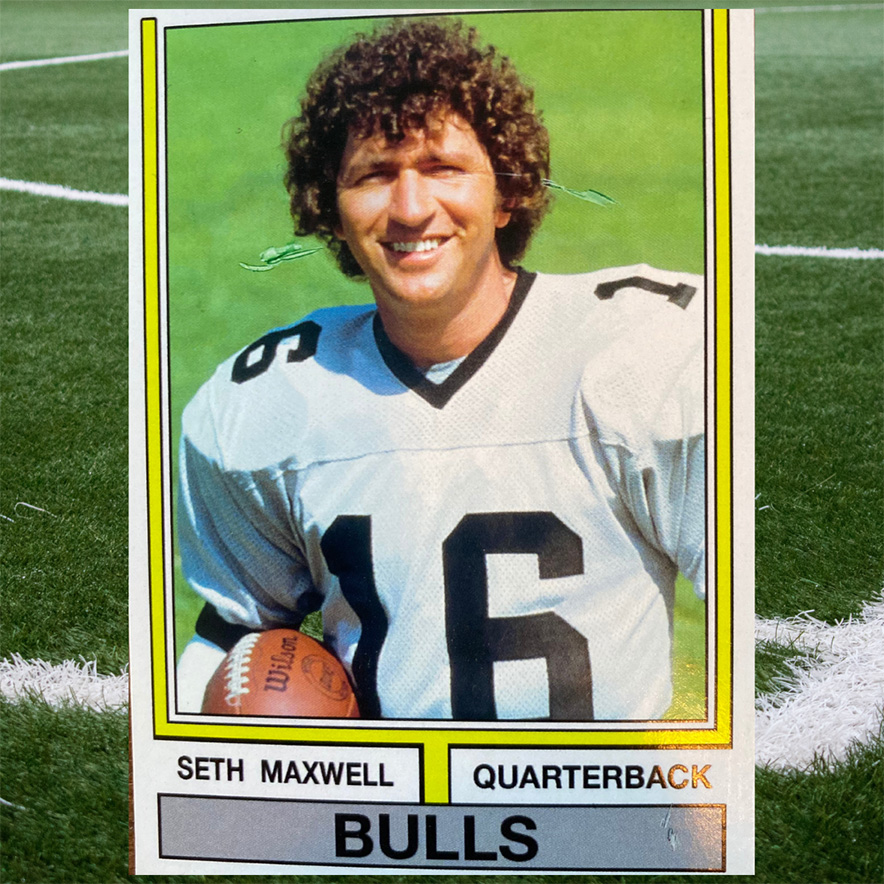 “North Dallas Forty” is not just a window into the world of professional football. It’s a reflection of the America of the 1970s, a time when racial divides scarred the very soul of the nation and even spilled onto the football fields. Behind every pass, touchdown, and tackle was a tale of segregation, ambition, politics, and change. The movie’s strength lies in its authenticity, drawn directly from the semi-autobiographical novel by Peter Gent, a former player for the Dallas Cowboys from 1964 to 1968.
“North Dallas Forty” is not just a window into the world of professional football. It’s a reflection of the America of the 1970s, a time when racial divides scarred the very soul of the nation and even spilled onto the football fields. Behind every pass, touchdown, and tackle was a tale of segregation, ambition, politics, and change. The movie’s strength lies in its authenticity, drawn directly from the semi-autobiographical novel by Peter Gent, a former player for the Dallas Cowboys from 1964 to 1968.
The significance of the title ‘North Dallas Forty’ is rooted in a sharp societal critique. In one interview, Gent expressed his shock at how Dallas could have an NFL franchise in 1964 while maintaining a stark racial segregation system. Black players were barred from living near the practice field in North Dallas, relegating them to south Dallas. “I kept asking why the white players put up with their black teammates being forced to live in segregated south Dallas,” Gent pondered. The grave injustice continued until Mel Renfro championed change, filing a ‘Fair Housing Suit’ in 1969.
The North Dallas Bulls, the film’s focal team, is a barely disguised depiction of the real-life Dallas Cowboys. Amidst this rich tapestry of 60s and 70s America, with its turbulence and racial tensions, one figure stands out: Seth Maxwell, played by Mac Davis.
For many, Mac Davis was the singer-songwriter from Lubbock, Texas, renowned for hits like “In The Ghetto.” Yet, in “North Dallas Forty,” Davis showed a different facet of his talent. Despite being primarily known for his music, his portrayal of Seth Maxwell, the quarterback, was nothing short of masterful. Intriguingly, the role was reportedly offered to Don Meredith, the very quarterback Seth Maxwell’s character is based upon. But destiny, it seems, had other plans.
Davis’s portrayal is a testament to his deep understanding of the character and the times. Seth Maxwell isn’t just a quarterback. He’s the embodiment of the era’s struggles — an easy-going ‘good ol’ boy’ who harbors a fierce determination to win. While his external demeanor may exude casual charm, inside churns a cauldron of ambition, politics, and an unwavering commitment to the game. Davis’s nuanced performance offers glimpses of this internal turmoil, brilliantly capturing the essence of Maxwell.
The film uses football as a metaphor to delve deeper into societal issues. As the glamourous quarterback, Davis’s Maxwell acts as the mediator between the management and the players, including his best friend, Phillip Elliott (played by Nick Nolte, representing Peter Gent himself). The tensions in their relationship symbolize the broader conflicts within the team and society. Maxwell’s famous line, “You had better learn how to play the game,” serves as a poignant reminder of the need to navigate not just the challenges on the football field but the larger game of life, racial politics, and societal expectations.
However, beyond the tackles and touchdowns, the film shines a light on the players’ personal lives. Through Maxwell’s eyes, we see the emotional toll, the physical demands, the sacrifices, and the small victories that come with being part of “America’s Team.” His interactions, friendships, rivalries, and romances form the backbone of the story, making it as much about human connections as it is about football.
To say Mac Davis was merely acting might be an understatement. He lived the character, bringing to the screen a rawness and authenticity that made Seth Maxwell memorable. For Davis, who hailed from Texas, football wasn’t an alien world. He understood the nuances, the hometown hero dynamics, and the sheer passion that fuels the sport. This insight enriched his portrayal, making it one of the standout performances in a film packed with stellar acts.
In retrospect, “North Dallas Forty” serves as a mirror to an era marked by change. While it beautifully captures the spirit and challenges of professional football, its true genius lies in its commentary on the societal shifts of the 1960s and 70s. And at the center of this narrative stands Mac Davis’s Seth Maxwell, reminding us that beneath the helmet and the pads, there’s a human story waiting to be told.